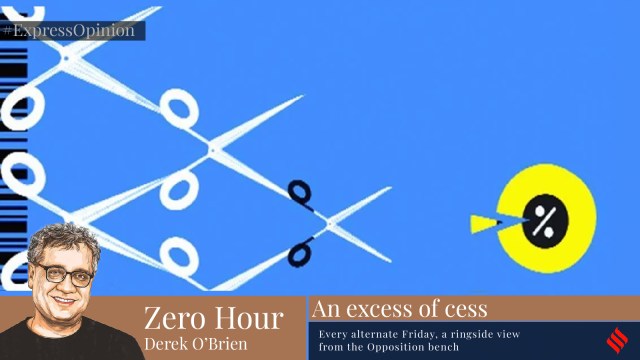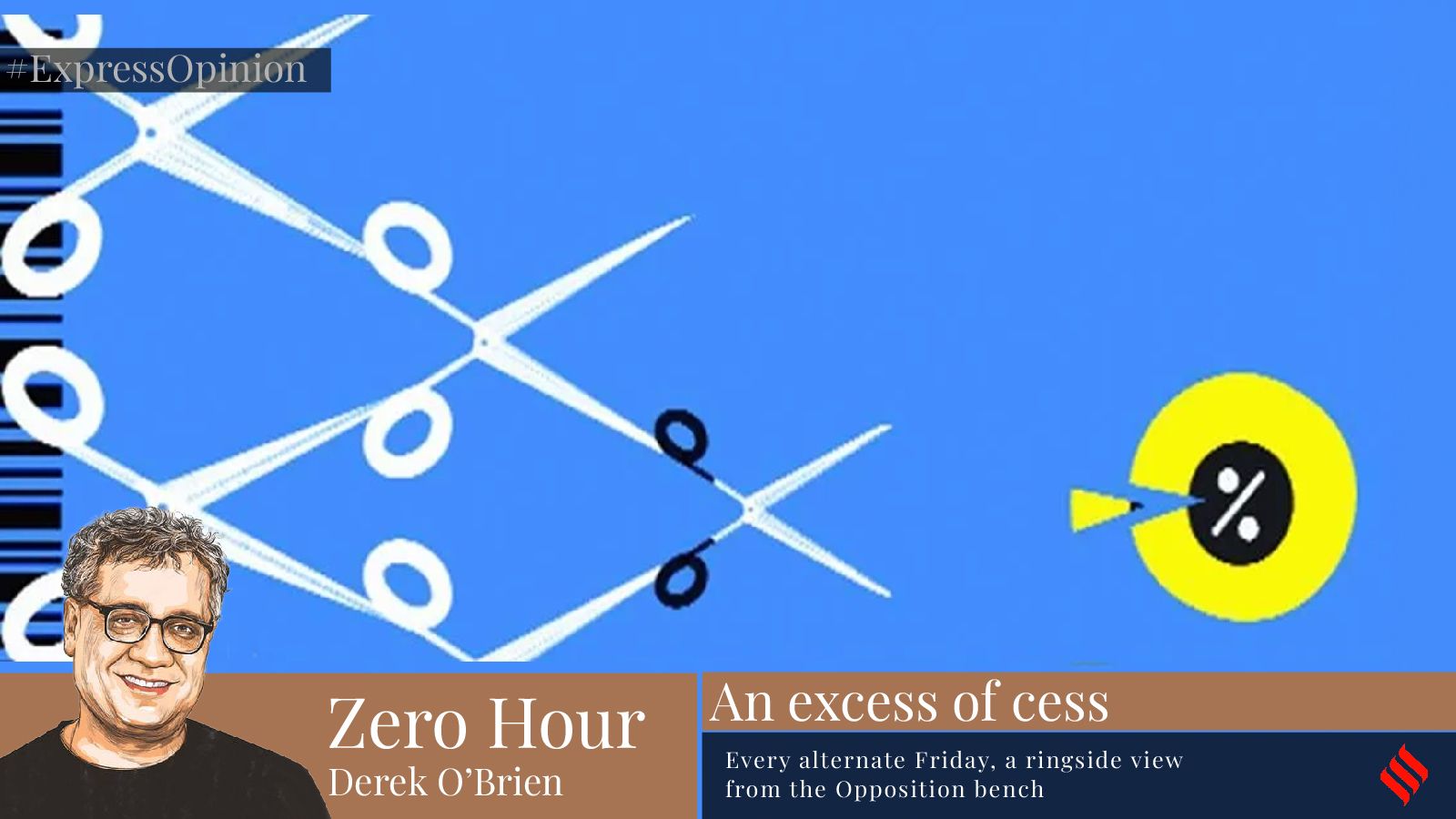
“Chief Minister Narendra Modi today accused the Centre of adopting a policy of coercive federalism and thus pushing states to a subordinate position by monopolising all powers of financial allocations, reducing even the constitutional rights of states,” (IE, January 16, 2012).
Your columnist distinctly remembers the then finance minister, the affable Arun Jaitley, inviting about half a dozen fellow MPs to his room in Parliament for a hearty lunch sometime in 2015. Our gracious host wanted to celebrate the good news: The 14th Finance Commission had recommended increasing the devolution of the divisible tax pool to states from 32 per cent to 42 per cent. We all saw this as a big win for federalism. But Jaitley’s boss, the former chief minister of Gujarat, had other ideas. A dirty, four-letter word that damages federalism: Cess.
As any undergraduate in commerce will tell you, cess is not a part of the divisible pool; that is, the money collected is not shared with state governments. A cess is a specific tax imposed by the Union government to raise funds for a designated purpose. The Union government currently levies a GST compensation cess, a cess on health and education, road and infrastructure, agriculture and development, Swachh Bharat, exports, and crude oil, among others.
Consider this. In 2012, cess formed 7 per cent of the Union government’s total tax revenues. In 2015, this rose to 9 per cent. In 2023, cess contributed to 16 per cent of the total tax revenue. From 2019-23, the Union government has collected a whopping Rs 13 lakh crore as cess. This excludes GST compensation cess. In the last five years, it has collected Rs 84,000 crore as cess on crude oil.
The share of cess as part of the Union government’s gross tax revenue has tripled, up from 6 per cent in 2011 to 18 per cent in 2021. This rise in cess and surcharge has inversely led to a reduction in the divisible pool of taxes. The divisible pool has shrunk from 89 per cent of gross tax revenue in 2011 to 79 per cent in 2021. This, despite the 10 per cent increase in tax devolution to states as recommended by the 14th Finance Commission.
A Comptroller and Auditor General (CAG) report exposed that in 2018-19, the Union government withheld Rs 1 lakh crore of the Rs 2.75 lakh crore collected through various cesses in the Consolidated Fund of India (CFI). Rs 10,000 crore of the Road and Infrastructure Cess collected during the year was “neither transferred to the related Reserve Fund nor utilised for the purpose for which the cess was collected”. More alarmingly, Rs 1.24 lakh crore collected as cess on crude oil in the past one decade “had not been transferred to the designated Reserve Fund (Oil Industry Development Board) and was retained in CFI”. The report further stated that “non-creation/non-operation of Reserve Funds makes it difficult to ensure that cesses and levies have been utilised for the specific purposes intended by the Parliament”.
The key reason for the imposition of cess and surcharge is for the Union government to increase its revenue. One major criticism has been its inability to increase revenue substantially, despite increasing cess. Revenue receipts have increased only marginally in the last 10 years — from 8.8 per cent of GDP in 2014 to 9.6 per cent of GDP in 2024. Less than one percent.
Recently, the Chief Minister of Karnataka wrote to eight other chief ministers, of both NDA and Opposition governed states, expressing concern that states with higher per capita GSDP were being penalised for their economic performance by receiving disproportionately lower tax allocations.
In the early 1980s, the Sarkaria Commission recommended that cesses and surcharges should be levied for a specific purpose and for a limited time period. In 2010, the Punchhi Commission stated that “extension of cesses and surcharges amounts to dilution of the recommendations of the Finance Commissions and deprives the States of their due share in Central tax revenue”. It further elaborated that, “we recommend that the Central Government should review all the existing cesses and surcharges with a view to bringing down their share in the gross tax revenue”.
The recommendations of the Sarkaria Commission and the Punchhi Commission have been ignored. The number and quantum of cess that is levied keeps increasing. States that ideologically oppose the ruling dispensation are often deprived of their rightful dues. Seasoned Opposition MPs in the corridors of Parliament rue the reality. TINSTAAFL (There is no such thing as a free lunch)!
The writer is MP and leader, All India Trinamool Congress Parliamentary Party (Rajya Sabha), Additional research by Ayashman Dey and Dheemunt Jain



